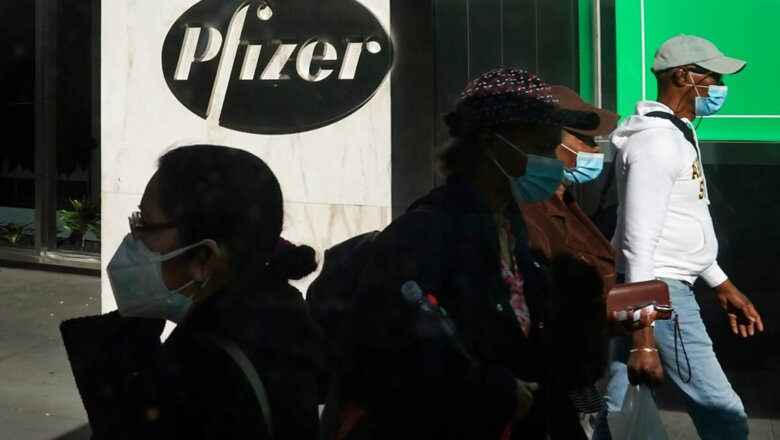
views
Pfizer expects to apply to the Food and Drug Administration in September for emergency authorisation to administer its coronavirus vaccine to children between the ages of 2 and 11, the company told Wall Street analysts and reporters on Tuesday during its quarterly earnings call.
The company said it also plans to apply this month for full approval of the vaccine for use in people from ages 16 to 85. And it said it expected to have clinical trial data on the safety of its vaccine in pregnant women by early August.
By early next week, the FDA is expected to issue an emergency use authorization allowing the vaccine to be used in children 12 to 15 years old, a major step ahead in the U.S. fight against COVID.
The Pfizer-BioNTech vaccine is being given to adults in the United States under an emergency use authorisation that the companies received in December. Obtaining full FDA approval would, among other things, allow the companies to market the vaccine directly to consumers. The approval process is expected to take months.
“Full approval is a welcome indicator of the continued safety and efficacy of the Pfizer vaccine,” Saskia Popescu, an infectious disease epidemiologist at George Mason University, said in an email. It could also “build further confidence in the importance of vaccination,” she said.
The Pfizer-BioNTech coronavirus vaccine was the first to receive emergency authorization in the United States. Emergency authorizations are meant to be temporary and can be revoked when a public health emergency is over.
Full approval would allow the vaccine to remain on the market as the pandemic fades. It may also make it easier for companies, government agencies, schools and other entities to require vaccination. The University of California and California State University school systems, for instance, have announced that once coronavirus vaccines receive full FDA approval, they will require students, faculty and staff members to be vaccinated. The U.S. military, which has seen many troops decline coronavirus vaccines, has said that it would not make them mandatory as long as they have only emergency authorisation.
Jen Psaki, the White House press secretary, said at a news conference on Tuesday that she did not want to get ahead of the FDA’s authorization process, but that the administration was preparing to “make that accessible to additional, younger populations.”
Emily Anthes c.2021 The New York Times Company
Read all the Latest News, Breaking News and Coronavirus News here. Follow us on Facebook, Twitter and Telegram.




















Comments
0 comment